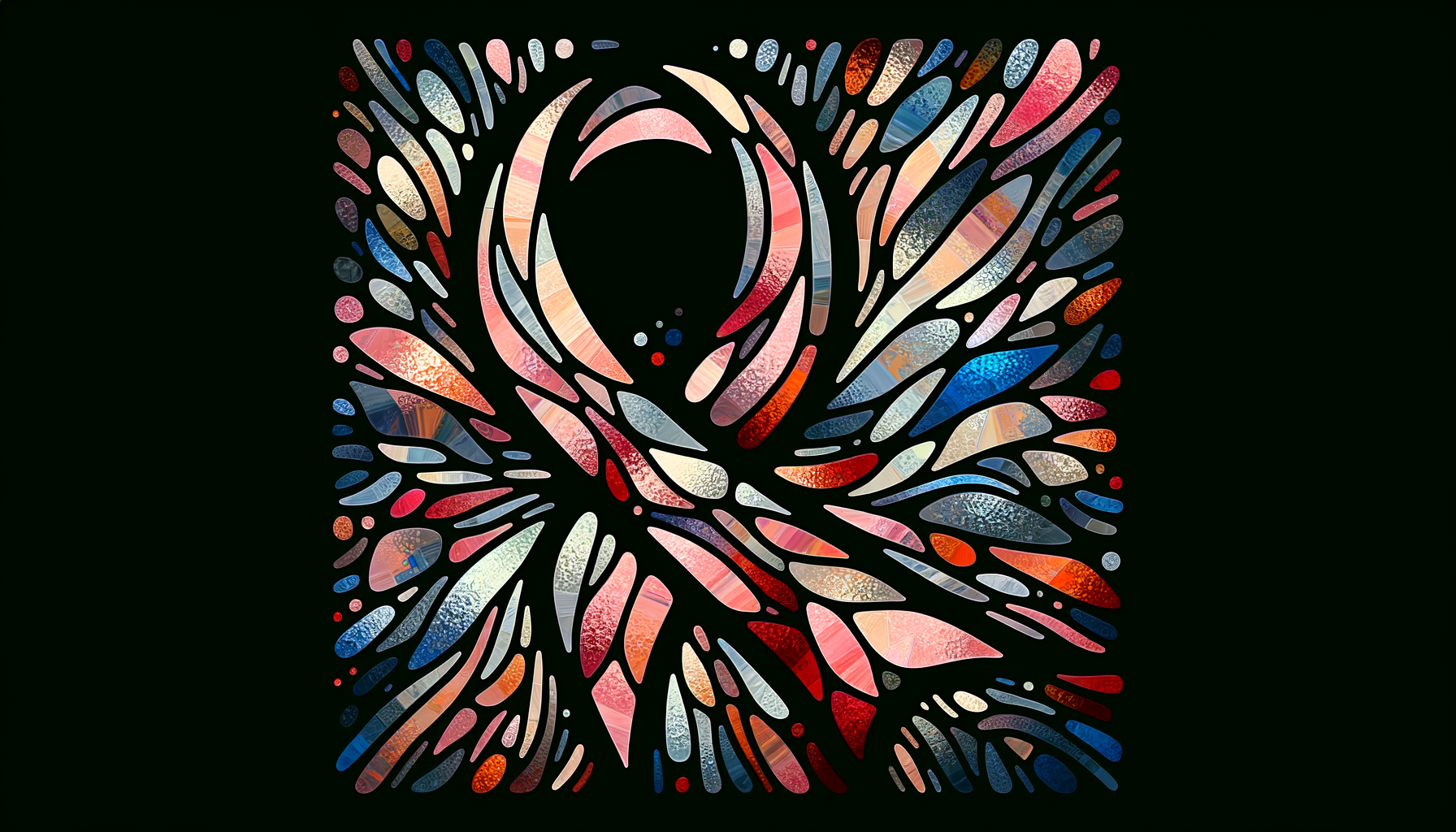We all have scars. Some are small and hidden—a faint line on your knee from that ill-advised cartwheel phase in third grade. Others stand out, like the jagged reminder of a bike accident that left you humbled (and slightly terrified of gravel). Then, of course, there are the metaphorical ones: the first fight with your best friend, the breakup that felt like a sucker punch to your soul, or that time you said “you too” when a waiter told you to enjoy your meal.
And yet, for all their pain, scars aren’t just marks of what hurt us. They’re proof we survived, and they shape how we move forward. In relationships, this is especially true. Whether it’s a literal scar with an epic story behind it or an emotional one that quietly influences how you connect with others, scars reveal as much as they conceal. Let’s explore why they’re a little messy, a little beautiful, and kind of the ultimate relationship flex.
The Literal Scars: “So, This One Time…”
I’ll start with the obvious: visible scars are conversation starters. Mine? A thin, crescent-shaped scar on the back of my right hand, courtesy of a kitchen experiment gone wrong in college. (Pro tip: frying tofu should never involve overconfidence or a margarita. Or both.)
What I didn’t realize at the time was how this tiny scar—innocuous as it is—would become a shorthand for introducing a certain kind of vulnerability to first dates. Over dinner one night, someone interrupted their own anecdote to ask, “Wait, what happened to your hand?” I laughed, delivered the tofu tragedy with Oscar-worthy drama, and suddenly, the dynamic shifted. My scar wasn’t just a silly detail; it hinted that I could laugh at myself, that I wasn’t some polished version of perfection, and that I could probably offer advice on how not to catch fire in small apartments.
Literal scars are like that. They bring an honesty to the table that goes beyond curated Instagram stories or careful hinges in conversation. They say, “I’ve been through some stuff, and here I am, still kicking.” They show character and, when shared, often lead to deeper, more genuine connections.
The Emotional Scars: Love, But Make It Complicated
Now, let’s talk about the less visible kinds of scars—the ones you carry around in your heart, like emotional post-it notes with scribbled reminders: Don’t trust too easily, Never date someone who owns a bird, It’s okay to need space. Emotional scars come from lessons learned the hard way, but they also shape what we value in relationships. And let’s be real: dating without emotional baggage is like moving to Austin and swearing you’ll never talk about breakfast tacos. It’s just not realistic.
So how do we deal with these scars without letting them take the wheel? The trick isn’t to pretend they don’t exist or insist you’re “totally over” that toxic ex who gave you trust issues. Instead, it’s about acknowledging them, sharing as much as feels comfortable, and recognizing that emotional scars show growth, not damage.
Here’s the thing: everyone has emotional scars, whether they admit it or not. The real magic happens when someone sees your vulnerability and doesn’t flinch. That’s where intimacy begins, where respect deepens, and where those metaphorical Band-Aids finally start to peel off on their own.
When Scars Speak Louder Than Words
Let me tell you about my friend Rachel. Rachel has a massive scar on her leg that she used to hide behind long skirts and strategically draped throw blankets. (Think every scene where Bridget Jones tries to hide her Spanx.) When she finally felt brave enough to wear shorts on a date, her partner asked her about it. She explained it was from a bad car accident when she was 16. Then she added, “But honestly, I think it’s pretty badass now. I was a whole superhero through physical therapy.”
Guess who fell head-over-heels for Rachel after that moment? Yep, her date.
The thing about scars—physical or emotional—is that they tell stories about resilience. Whether they remind us of a literal crash or an emotional one, they say, “This happened, and I’m still here.” Sharing your scars doesn’t make you weak; it marks you as brave. And if someone can’t handle your scars? Consider it a neon-red flag and move on to someone who will.
Loving Others (And Their Battle Wounds)
When you’re connecting with someone new, learning about their scars can offer a roadmap to understanding who they are. Maybe they’re fiercely independent because they grew up with parents who struggled to support them. Perhaps their nervous energy in crowded places comes from an anxiety they’ve worked hard to manage. Or maybe they’re hesitant to commit because their last relationship left a few too many bruises on their self-esteem.
Instead of judging someone for their baggage—or expecting them to unpack every piece right away—think of it as an opportunity for empathy. Try listening to what they’re ready to share, encouraging vulnerability without rushing it. Scars, after all, aren’t flaws; they’re simply a part of the human story. And loving someone fully means embracing not just their potential but also their past.
Wear Your Scars Like Trophies (But Make Them Cute)
Am I saying you need to get “I survived” stapled on a T-shirt and go shout your romantic or life trauma from every rooftop? Not exactly. But there’s a sweet spot between hiding your scars to appear more “dateable” and leaning into them as conversation-worthy accessories. Remember, there’s a fine—and ultimately empowering—line between being polished and being real.
Here are a few ways to reframe how you think about your scars:
- Ditch the shame narrative. Whether it’s a breakup story, a career setback, or a forehead scar from that unfortunate volleyball incident, stop apologizing for your past. Nobody gets through life without a few bumps and bruises.
- Trust the right people with your story. Not every date or partner will deserve a front-row seat to your deepest truths. And that’s okay! Share what feels safe, but remind yourself that the right person won’t just accept your scars—they’ll appreciate them.
- Laugh about it whenever you can. Humor is one of the easiest ways to reclaim a story that once hurt you. My tofu frying scar? Iconic. The time I texted “I love you” to the wrong number during a breakup? Tragic and hilarious. The key is finding the balance between vulnerability and levity.
Conclusion: Scars but Make Them Sexy
At the end of the day, scars are evidence of life lived. They’re not blemishes on your love life résumé but bullet points on what makes you, you. Whether they’re the literal kind written on your skin or the quieter ones etched on your heart, they’re proof you’ve endured, you’ve learned, and you’re still open to showing up—even when life gets messy.
So, here’s my advice: wear your scars, share your stories, and lean into connections that let you feel seen, scratches and all. And if you ever find yourself trying to fry tofu on a date? For the love of all that is flirty and sacred, keep the margaritas for afterward.




















